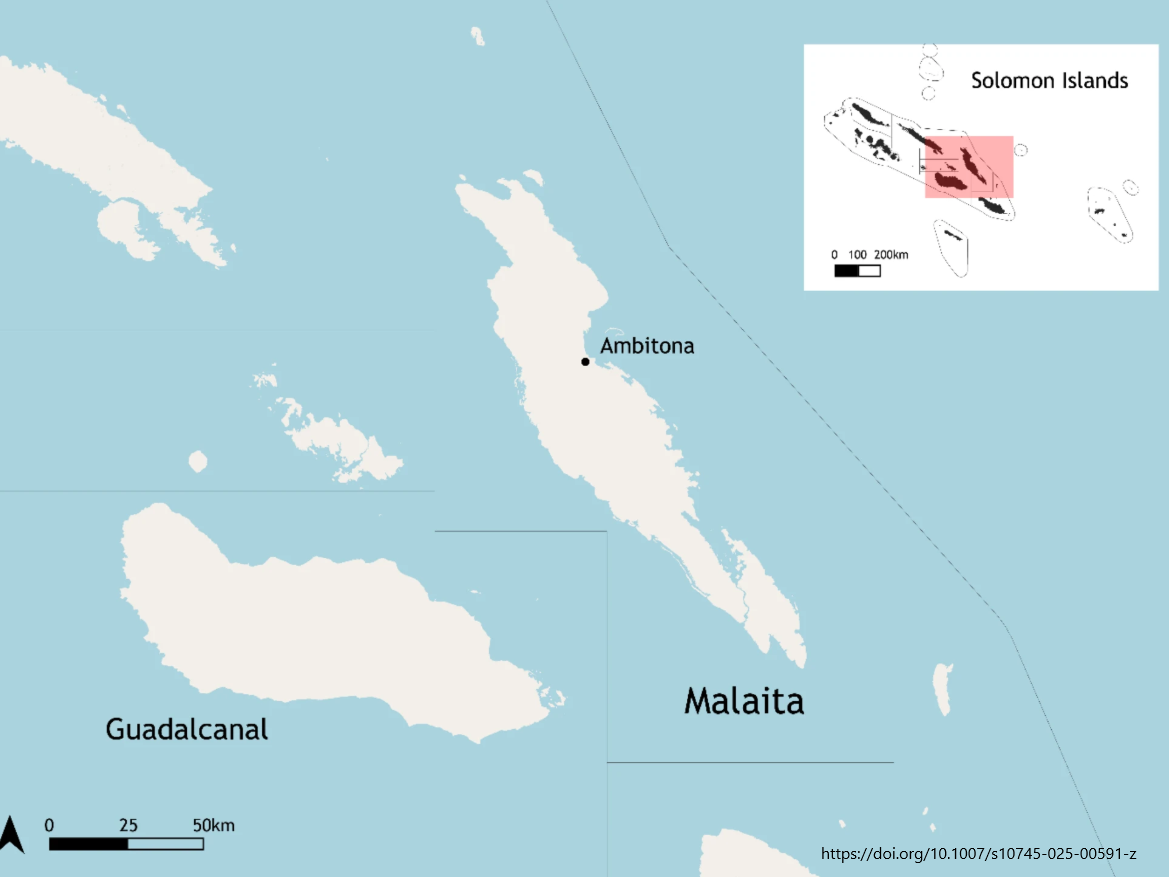
We present an initial exploration of why and how participation in a case of community-based resource management (CBRM) in a Pacific context could be considered a deviation from gender norms. Using analysis of in-depth interviews with community members in a village in Malaita Province, Solomon Islands, our data suggest four causal factors appear to have contributed to higher participation of women in CBRM compared to surrounding villages in the province: (1) higher than usual participation of women in fishing, (2) inclusive leadership and intrinsic values towards equality by male leaders, (3) experience of women in other non-fisheries leadership roles, and (4) supportive attitudes by the community towards women’s leadership. We suggest that rather than research focusing on gender of individual leaders or attitudes of individuals, as has been the norm, more attention should be given to the enabling context and specific norms around fisheries, work, community governance, and resource management to understand barriers and opportunities for increased inclusion in coastal fisheries management.














